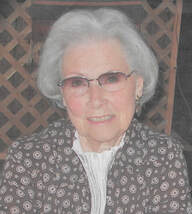The use of Ogam, an ancient Celtic language, has been traced back as far as 2000 B.C. Ogam is written in a series of perpendicular parallel lines similar to the bar system found on items in a modern day store. Ogam writing has been uncovered at about fifty sites along a 100-mile corridor in Colorado’s southwestern corner and the Oklahoma Panhandle. Why did the early inhabitants need a written form of communication? Perhaps to call people together for religious reasons, trade, or to record a story of an event. One Ogam inscription is a kind of calendar that tells when a certain grain should be planted.
Almost everyone is familiar with rock art, which not only is found in America and credited to Native Americans, but is found all over the world. Rock art is a very general term for pecking, incising or painting designs onto natural rock surfaces.
In modern America, the most common kind of “rock” art is that which is painted on concrete and brick walls of our cities and along our highways. In modern American culture, as in all cultures, it expresses the values, attitudes, beliefs, and desires of society … the need to express ourselves. Writing is an important outlet for self-expression and the release of tensions, anxieties, and conflicts. Some individuals feel this urge to write more strongly than others.
Apparently down through the years, man’s need and desire to use writing as a way to communicate and express his feelings has not changed. Because of this inherent need and love of writing, The Kansas Authors Club was organized 116 years ago in 1904. The first president was Henry W. Roby. Kansas Authors Club is Kansas’ oldest writing organization. Since its inception, many famous writers have been counted among its members: Eugene Ware (Ironquill), Margaret Hill McCarter, William Allen White, Dr. Charles Shelton, Dr. Karl Menninger, and Senator Arthur Caper, to name a few. Today’s members are in excellent company.
The Kansas Authors Club still is meeting the need. As Professor I. B. Morgan, President of Kansas Author’s Club in 1935-’36 noted—the movement has been “forward and upward.” Professor Morgan stated that the nation at that time was in need of constructive literary productions teaching the sterling qualities of good citizenship, civic responsibility, the sovereignty of the people and a keen sense of duty.
People respond to writing, in whatever form, and find their imaginations stimulated, their sense of wonder awakened, and the horizons of their world pushed back just a little. It is only at the moment when a viewer responds to what is communicated by art or writing that the work becomes complete. In fact, the work is actually finished anew each time it is viewed, for no two viewers will see and respond in exactly the same way.
While writing fulfills the need and desire, the challenge still is there for us today. We can sate our need and love of writing, but we are challenged to do our best. To quote a poem by Edwin Markham:
your hands can avail:
And so if you falter, a chord in the
music will fail.
…..
Yes, the task that is given to each man
no other can do;
So your work is waiting: it has waited
through the ages for you.
And now you appear; and the Hushed
Ones are turning their gaze
To see what you do with your chance
in the chamber of days.


 RSS Feed
RSS Feed